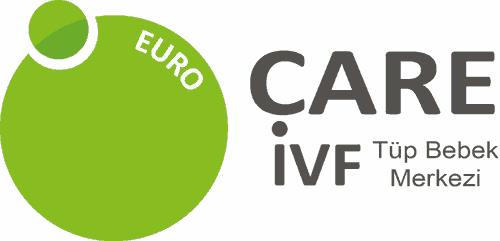
Fertility clinics are starting to reopen after the Covid-19 outbreak. Although not all clinics are operating at full capacity, the situation with reproductive care is slowly but surely improving.
Thousands of individuals and couples hope that they’ll finally make their dreams of a baby come true.
What happened during the Covid-19 outbeak?
It all started in March 2020 when the World Health Organization (WHO) declared the Covid-19 disease a pandemic due to the uncontrolled spread on a global scale.
As reproductive treatments were perceived “non-essential”, fertility clinics were forced to shut down temporarily. To stop the further spread of the coronavirus, the European Society of Human Reproduction and Embryology (ESHRE) recommended the following cautionary measures:
- Postponement of new treatment cycles, including ovulation induction, intrauterine insemination (IUI), in vitro fertilization (IVF) and egg freezing
- Cancellation of embryo transfers in IVF cycles
- Suspension of elective surgeries and non-urgent diagnostic testing
- Support for patients who are currently ‘in-cycle’ and for those who require urgent egg freezing (e.g. cancer patients)
- Reduction of in-person interactions through video consultations
How were patients affected by this decision?
With treatment cycles needing time to get up and running again, many patients were concerned that the delay might affect the success of their treatments. One group of patients who were particularly affected were women over the age of 35, as well as those with a low ovarian reserve.
In some countries, people even started signing petitions for continuity of reproductive care during the Covid-19 outbreak. However, experts argued that a three-month delay in treatment would have little to no effect on their pregnancy success, especially for women over 40.
Covid-19 and fertility
Current data suggests that Covid-19 doesn’t affect the quality of eggs nor it causes infertility in women. The infection doesn’t seem to increase the risk of miscarriage either. According to evidence, the virus cannot be transmitted through reproductive tissues, like eggs, sperm or embryos.
However, if you’re undergoing fertility treatment, a fever may reduce the number of eggs retrieved, increase the doses of stimulation medication needed and make the cycle longer. These effects, however, are reversible and they won’t impact your future cycles.
Unlike women, men may experience short-term issues due to Covid-19, such as decreased sperm count or poor motility. These effects are similar to those of the flu, meaning that once the fever resolves, sperm returns to its normal state.
Precautions for pregnant women
Pregnant women are not more likely to get infected by the coronavirus than other women. However, women who become sick with Covid-19 during pregnancy are at higher risk of pregnancy complications, such as prelabour rupture of membranes and preterm delivery.
To avoid potential infection, pregnant women are recommended to take all measures, including social distancing, regular hand washing and disinfecting surfaces daily. While the infection cannot be transmitted in utero, the newborn may get infected after delivery if it’s exposed. To protect your baby from the disease, wear a face mask and wash your hands before each feeding.
What’s the current situation with reproductive care?
Now that we are past the peak, fertility services can be finally restored and IVF clinics can reopen. As no new cases of the novel coronavirus have been detected in the Turkish Republic of Northern Cyprus (TRNC) over the last 4 weeks, we’re more than happy to announce that the euroCARE IVF clinic will reopen very soon.
Although the situation with the Covid-19 pandemic has significantly improved, clinics are still required to follow strict protocols to minimize the risk of coronavirus transmission. To reduce the physical contact between patients and staff, consultations will be conducted mainly by video and over the phone. In addition, there will be fewer visits to the clinic and fewer people will be allowed in the facilities (including in the waiting room).
Is it safe to have IVF after Covid-19?
To avoid the risk of infection, the euroCARE IVF clinic has allocated a limited number of pre-scheduled visits during the day. Disinfection is also implemented on a daily basis in order to maintain a consistent level of hygiene.
If you need to attend the clinic, you’ll be asked about any coronavirus symptoms (such as fever, coughing, and shortness of breath), as well as whether you’ve had close contact with an infected person. To get into the clinic, you’ll need to wear a face mask and keep a distance of at least two meters. We’ll also ask you not to bring anyone with you to your appointment unless they are also having a consultation or procedure too.
Additional measures that we have put in place to provide treatment in the safest way possible include virtual consultations, online treatment planning sessions, and contact-free diagnostic testing. You can also sign application forms, consents and receive your treatment protocol online.
All patients are required to sign a code of conduct before treatment where they agree to avoid behaviors that might put them at risks of Covid-19 infection and practice social distancing.
Ready to start your IVF treatment?
For people who have been waiting to start IVF, the good news is that more clinics are reopening. With a renewed sense of hope, many aspiring parents can now seek treatment to start or grow their family.
If you considering undergoing IVF, schedule a free video consultation today and get the guidance and help you need to become the parent you aim to be.
